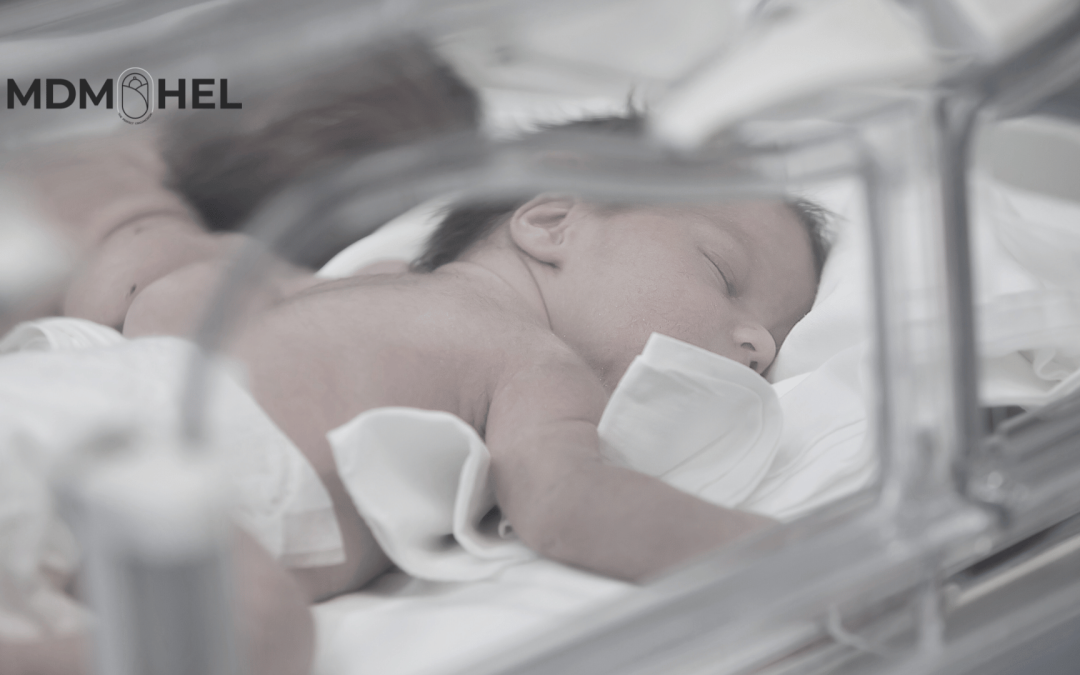A Bris Milah is a sacred milestone in Jewish tradition, symbolizing a child’s entry into the covenant. While its religious significance is profound, ensuring the highest level of care and comfort for the baby is equally essential.
Rabbi Rappaport has dedicated himself to bridging the gap between religious tradition and medical expertise. He works closely with healthcare professionals to create a seamless, safe, and spiritually enriching family experience.
His collaborative approach prioritizes both halachic integrity and the best medical practices, ensuring that each Bris is performed with the utmost precision, sensitivity, and care.
Medical Clearance: The First Steps Before a Bris Milah
Ensuring the baby’s health is the top priority before proceeding with a Bris Milah. Once the baby is born and both mother and child are stable, the hospital conducts a thorough newborn assessment.
As part of the discharge process, medical professionals evaluate the baby’s overall condition and confirm that circumcision is medically appropriate. While most newborns are cleared without concern, this initial approval sets the foundation for a safe and smooth Bris.
The Role of Pediatricians and Specialists in the Decision
Pediatricians are crucial in determining whether a baby is ready for a Bris. In most cases, a routine check-up before the eighth day is sufficient to confirm that the baby is healthy enough for the procedure.
Pediatricians—sometimes in consultation with specialists—assess the best course of action when a newborn has underlying health conditions. Their input ensures that the Bris aligns with medical safety and halachic guidelines, offering parents peace of mind.
When Medical Concerns Require a Delayed Bris
Certain medical conditions may call for delaying or modifying the Bris Milah.
If a baby has specific physiological concerns—such as a blood clotting disorder, heart condition, or other neonatal complications—medical and rabbinic guidance must work in tandem.
In these cases, collaboration between healthcare providers and an experienced mohel, like Rabbi Rappaport, ensures the Bris is conducted at the right time and under the safest conditions. Jewish law prioritizes the baby’s well-being, and when doctors recommend waiting, the Bris is postponed until it is deemed safe.
How Jaundice Affects Timing
One of the most common reasons for delaying a Bris is neonatal jaundice, a condition caused by elevated bilirubin levels in a newborn’s bloodstream. This typically occurs within the first week or two of life and often resolves naturally with increased breastfeeding or formula intake.
If bilirubin levels are within a safe range, the Bris may proceed as scheduled. If they are too high, medical professionals and Jewish law dictate that the Bris be postponed until the baby’s condition improves. This careful balance ensures that the child’s health remains the top priority while upholding the sacred tradition of Bris Milah.
Hypospadias: A Unique Challenge for the Bris
Hypospadias is a congenital condition that occurs when the urethral opening is not located at the tip of the penis but instead develops along the underside.
While hypospadias is not extremely common, families who experience it often seek expert guidance on whether and how a Bris can be performed. Each case requires careful evaluation, as the severity of hypospadias determines the approach.
Rabbi Rappaport has built strong relationships with top pediatric urologists in Maryland (both at Johns Hopkins and the University of MD) and at Children’s Hospital in Washington, DC, ensuring that each baby receives the best medical and halachic care. His ability to navigate these cases with expertise and sensitivity allows families to honor their traditions while prioritizing their children’s well-being.
Mild, Moderate, or Severe Hypospadias: When a Bris Can Proceed
The degree of hypospadias directly impacts whether a Bris can take place as scheduled:
- Mild Hypospadias: A standard Bris can typically be performed without concern if the urethral opening is only slightly displaced.
- Moderate Hypospadias: These cases require coordination with pediatric urologists. In some situations, a modified Bris is recommended to preserve the necessary foreskin for future corrective surgery. Rabbi Rappaport has performed a modified Bris for babies with moderate hypospadias, ensuring both religious and medical needs were met.
- Severe Hypospadias: When the urethral opening is significantly misplaced, corrective surgery is required, typically around six to nine months of age. In such instances, the Bris must be postponed until the surgery. Rabbi Rappaport will be invited to attend the procedure and work with the surgeon to fulfill the Bris aspect during the corrective surgery.
Each case of hypospadias presents unique challenges, but Rabbi Rappaport ensures that families can fulfill this sacred mitzvah while prioritizing their child’s health and future well-being through careful planning and collaboration.
Faith and Medicine in Harmony: Creating a Safe and Sacred Experience With Rabbi Rappaport!
Thousands of grateful families recommend Rabbi Rappaport as the ideal Mohel for the perfect Bris Milah ceremony! Ensure peace of mind and a perfect outcome with a trusted expert. Reach out now and take the first step towards ensuring your child’s circumcision is perfect. We also invite you to read or write a review of your experience with Rabbi Rappaport!
Let Rabbi Rappaport do the job if you plan to organize a ritual circumcision for yourself or your child. Contact him anytime on his cell at (443) 790-6541. You can also send him an email at rabbi@mdmohel.com or visit his website. He will be happy to support you in making sure you have a perfect experience!







